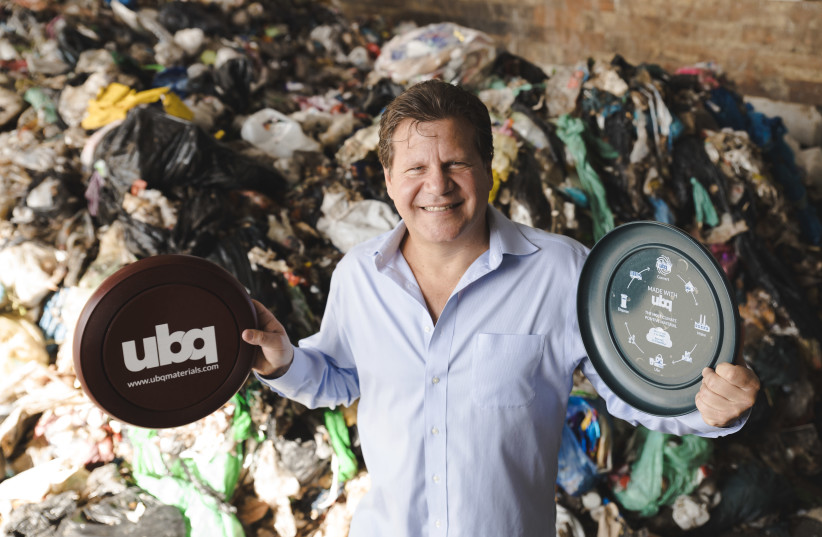The two companies launched a new filament with a significantly reduced carbon footprint in order to enable sustainable & eco-conscious manufacturing.
By JERUSALEM POST STAFF MAY 13, 2021

Tel Aviv-based UBQ Materials, developer of a revolutionary technology that turns landfill-destined household waste into thermoplastic, announced on Wednesday a partnership with Plastics App, a leading R&D company in tailor-made applicative innovation for polymers and plastics. Together, they launched a new filament with a significantly reduced carbon footprint in order to enable sustainable and eco-conscious manufacturing, as so far, the most sustainable 3D filaments have been mainly based on a material that has limited properties.
3D printing, a versatile manufacturing technique that enables less energy and raw material usage than traditional production methods, as well as reducing the carbon footprint of the materials used, has been widely recognized as an environmentally responsible alternative. Plastics App has developed UBQ inside filaments, which, when applied to 3D printing, expand sustainable application to functional uses such as jigs, fixtures and spare parts.
“Combining our end-to-end filament development capabilities with UBQ’s climate-positive material has opened sustainable opportunities for industries like automotive and housing, where fully functional prototyping is an essential part of both R&D and small-scale production,” said Dr. Yanir Shaked, founder and general manager of Plastics App. “Using eco-conscious material to 3D-print functional prototypes from the early stages of development helps companies meet their sustainability goals without compromising on product functionality,” he said.
UBQ has already been adopted by large multinational enterprises such as McDonald’s and Daimler, among others, having been incorporated into end products across various industries.“Introducing 3D-printing filaments to the market enables UBQ to test the limits and go beyond the boundaries of traditional plastic manufacturing techniques,” said Tato Bigio, co-founder and CEO of UBQ Materials. “The versatile applications of UBQ allow for its incorporation into a wide range of products, decreasing emissions and preventing landfill buildup,” he added. “This partnership will expand the scope of companies that can refine their processes while reducing their energy use.”
The company, established in 2019, is already making an environmental difference. Every ton of UBQ material used saves about 12 tons of carbon dioxide from being emitted into the atmosphere, Bigio said, adding that the recycling of organic material can also reduce methane emissions, which can be between 86 to 105 times as powerful as carbon dioxide at affecting climate.
